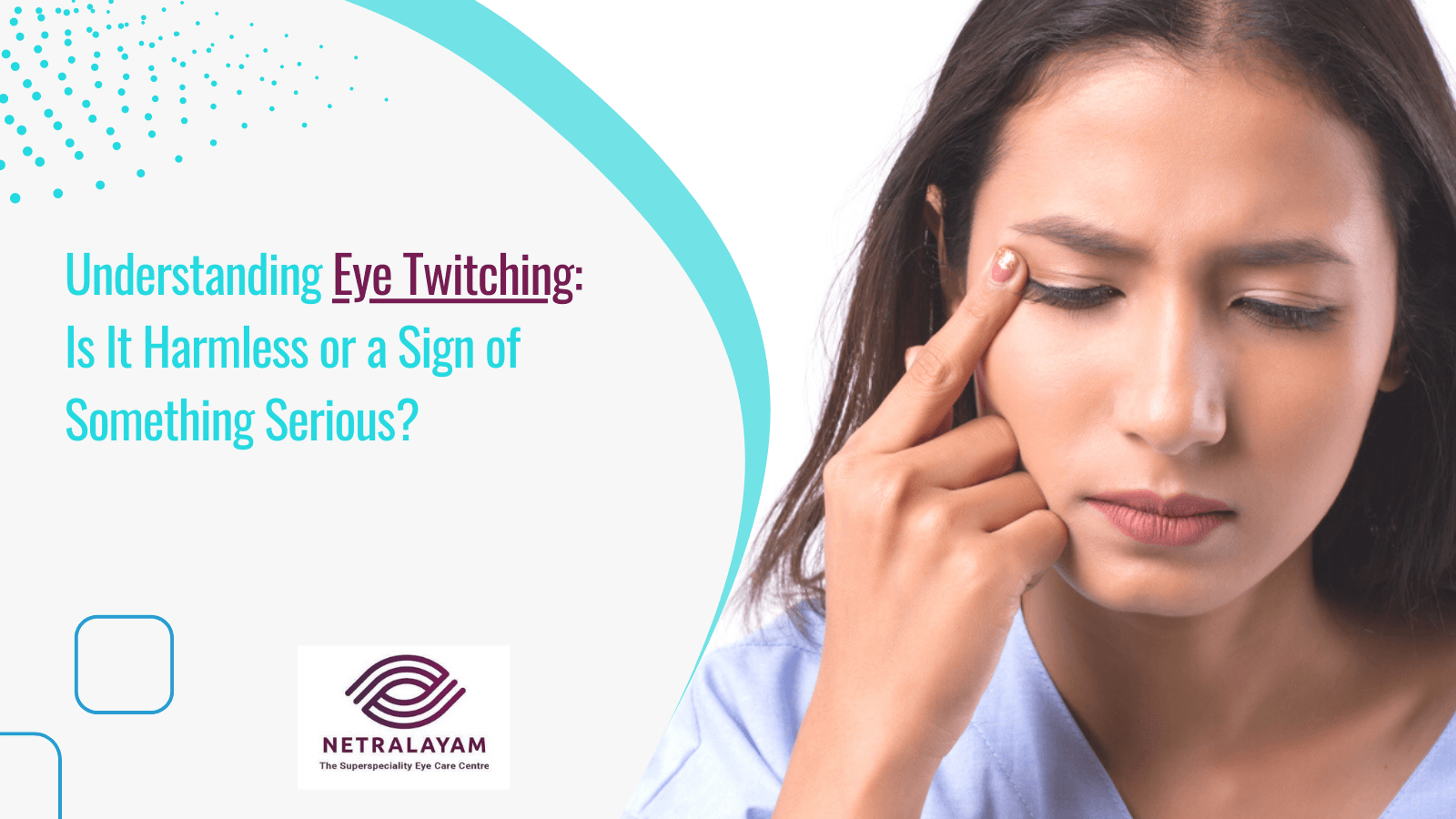Committed to Eye Care with Compassion, Technology and Competency
Committed to Eye Care with Compassion, Technology and Competency

5/15/2023
Imagine you are experiencing eye twitching for a few days or weeks. At first, you dismissed it as a normal phenomenon. But, as the days went by, the twitching became more frequent & intense. You started worrying that something is seriously wrong.
Your experience is not unique. Eye twitching, also known as myokymia, can be caused by a variety of factors, ranging from fatigue to stress to neurological disorders. While most cases of eye twitching are harmless and resolve on their own, some may require medical attention
So if you are someone who is experiencing eyelid twitching, it's essential to understand its underlying causes and when to seek medical advice.
In this blog, we will explore the different causes & provide some tips to manage it
Generally, eye twitch is not harmful and can be caused by various factors such as fatigue, mental stress, your caffeine intake, dry eyes, allergies, and neurological conditions. They can also be a side effect of certain medications. In most cases, eye twitching is a benign condition that disappears independently. However, in rare cases, it may be a symptom of a more serious underlying condition, such as blepharospasm or hemifacial spasm.
Generally twitching of Eyelids is a common occurrence that is usually not a cause for concern. However, if you experience persistent twitching of your eyelids lasting for several days or more, it could indicate a more serious underlying condition. Specifically, if your eye twitching is accompanied by facial spasms or drooping, it may signify a neurological condition such as hemifacial spasm. In severe cases, eye twitching can affect your vision and daily activities, requiring immediate consultation with an eye doctor to determine the cause and appropriate treatment.
It is worth noting that if you have been experiencing eye twitching for a month or longer, it is not a regular occurrence and may be a sign of an underlying medical condition. As such, it is recommended to seek medical advice from an eye doctor who can diagnose the root cause of the problem and suggest an appropriate treatment plan. Your eye health is paramount; seeking prompt medical attention can prevent potential complications.
As mentioned above already, several factors can cause eye twitching. Let’s take a look at each of them in detail.
See Also: How do Neurological Disorders Affect Your Eyes?
It is important to note that eye twitching is typically a temporary condition that resolves independently. However, if it persists for an extended period or is accompanied by other symptoms, it is advisable to seek medical advice from an eye doctor.
Eye twitching, also known as blepharospasm, is a common condition that is usually harmless but can be annoying and distracting. Here are some ways & tips that you can follow to prevent or reduce eye twitching:
See Also: Stress and Vision Loss: Learn How Mental Health Affect Your Eyes
Following these tips can help prevent or reduce eye twitching and keep your eyes healthy.
Eye twitching is a common and often harmless condition that can be caused by various factors. While it can be an annoyance, it is usually nothing to worry about and will resolve on its own. However, if it persists or is accompanied by other symptoms, it may be a sign of a more serious underlying condition.
If you are experiencing eye twitching, it's crucial to pay attention to your body and seek medical attention if needed. Taking steps to reduce stress, getting adequate sleep, and limiting caffeine and alcohol intake can also help alleviate the symptoms.
Remember, prevention is always better than cure, and taking care of your overall health and well-being can help prevent eye twitching from occurring in the first place. By staying informed and taking care of yourself, you can keep your eyes healthy and reduce the likelihood of eye twitching.
If you are experiencing eye twitching or have concerns about your eye health, contact Netralayam to schedule an appointment with an eye doctor. Regular eye exams can help detect and treat any underlying conditions causing eye twitching or other vision problems.
Contact us today to discuss any concerns about your eye health and get the treatment you need to alleviate eye twitching and other vision problems.
Comments are closed
